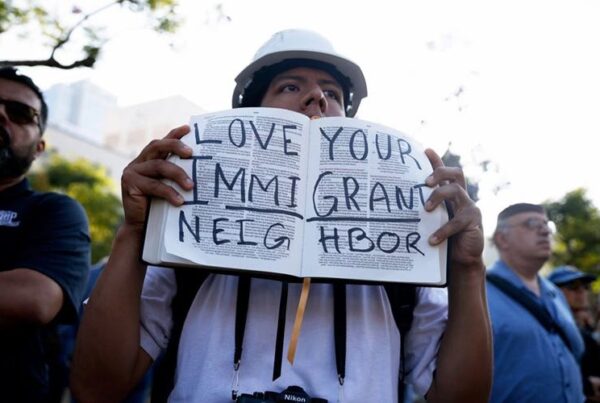This is the first blog in a series called On the Road with Elena. Follow along as Chasing Justice contributor Elena De La Paz, invites you on her justice journey as she works at Casa Esperanza in Costa Rica. How does Jesus invite us to live justly so that everyone can flourish?
“Where are you from?”
“No, but like, where are you from from?”
“Wait, you’re not Latina? You’re Asian?!”
“Why is your last name Spanish?”
“I kept looking at you and I couldn’t figure out what you were.”
Welcome to the confusion (for me and for others), of life in the liminal, in the gray ambiguity between black and white constructs of identity—racial and otherwise—where nuance and complexity isn’t welcome. Where a lack of nuance keeps us from fully celebrating our identities.
Sound familiar? Lots of people of color have their own stories of searching for the complexity we need. Here’s mine:
My dad is Filipino, born in Manila. His family moved to the U.S. when he was about two years old. The family’s plan was always to return home to the Philippines, but they came to the U.S. to all be together while my “lolo” (grandfather in Tagalog) was studying on the East Coast.
My mom’s family is mostly of German heritage. Her family migrated to the United States some generations back.
Those are the pieces of the story that I know. In both of my parents’ stories, assimilation robbed us of the ability to remember and celebrate the diverse beauty of our cultural identities. It reminds me of a mural in the “pueblito” (small town) where I live in Costa Rica that says: “el olvido es violento.”
“To forget is violent.”
When we forget our cultural identities we fall into the trap of idolizing and conforming to an identity that rejects the unique ways God made us in God’s image. We become isolated—from ourselves and from one other.
Understanding My Filipino Heritage.
I grew up in a U.S. community that was not racially diverse, and didn’t know how to describe the “otherness” that I always felt as a bi-racial person of color. Beyond the complexities of a bi-racial identity (and multi-racial identities, I see you) I still struggle to understand the multi-faceted nature of the Filipino identity.
“The Latinos of Asia,” a term coined by sociologist Anthony Christian Ocampo, resonates most deeply with my understanding of my Filipino family’s culture. It also connects to how I have come to identify myself after spending time in various contexts within Latin America and with the Latinx community in the U.S.
It is a little-known fact that the Philippines also experienced a long period of Spanish colonization (three centuries) that appears in everything—from cultural and religious values to our Spanish last names. There’s a kind of openness and an “everybody-is-welcome-around-the-table” attitude in Filipino culture that is similar to my experiences in Central America.
After Spanish colonization, the Philippines also experienced 50 years of U.S. colonization, manifested in the influence of the English language and in my family’s ability to migrate to the U.S. when they did.
I’m realizing how important it is to remember the fullness of my identity. In doing so, I’m able to experience a deeper connection with my ancestors and the God of my ancestors.
But as I do this I can’t forget to also question the narratives and identities that have shaped me—the ones I used to take for granted.
Swapping Nationality for Mutuality.
Take nationality. If an identity that I cling to does not enable me to love God, myself, and my neighbor more, but leads me to separate myself from who I choose to see as “other,” then I must seriously evaluate this identity.
Three months ago, I moved to a Northern border town in Costa Rica where I work at a “comedor” (dining hall) and dormitory that is seeking to offer both physical and psychosocial care to the migrant population here.
Almost every day, as I sit and talk with people about their stories of leaving their countries and passing by foot through the Darién gap (I’ll share more throughout this series), we eventually share about our nationalities: our countries of origin.
In these conversations I am confronted with the reality that there is a power differential in the fact that I am a U.S. citizen with a U.S. passport. It often comes down to ease of movement.
As I go for evening walks by the river, listening to the many birds in the trees, I think about how migration is a natural thing – for animals and humans alike. Migration is written into the cycles of life of many animals. Migration has also always been part of the story of humans and the people of God.
Yet, we live in a world of systems and structures that controls the freedom to migrate, based on the color of your skin, your socioeconomic status and your nationality.
Restoration and Remembering the Prince of Peace.
I recently traveled to Argentina (with the privilege of a passport that allows me to do so) to participate in a conference on migration, human rights, and the connection to a theology of shalom.
I had the opportunity to listen to and learn from many faithful leaders and disciples of Christ from all over Latin America. Their eyes, their nuanced identities, and their stories of being marginalized and/or living alongside marginalized populations invited me to de-center the U.S. from my identity and discipleship.
Their stories of marginalization reminded me who Christ truly was: a Palestinian, a refugee and a man who was marginalized and despised because of these identities. He was neither celebrated nor embraced, in the fullness of this identity.
This process of de-centering my nationality as part of my identity and discipleship is a process that has honestly been painfully humbling. Being critical of my national identity, and the pride that leads me to forget our connectedness as human beings and brothers and sisters in Christ, is no cake walk.
Moving in the Ways of Justice.
Jesus calls me to act and to embody justice. For like the prophet Amos says, “let justice roll down like waters.” We too are called to roll—to move—in the ways of justice that embrace our interconnected flourishing.
Moving in the ways of justice includes both what we do and what we leave undone. It’s creating spaces for those who have been silenced or pushed aside. It’s caring for our non-human neighbors of the earth, by listening to them, and sometimes, leaving them be. It’s understanding what our money is funding and choosing to disengage when necessary.
I’ve realized that uncovering my fullest identity in Christ means remembering the ways I have been shaped by my race, ethnicity, culture(s), nationality, social location and family structures.
To remember my own uniqueness, is to remember the uniqueness of my neighbor. When we recognize the beauty of our diversity we are able to dream together, alongside the Spirit of the living God. We are able to act and create spaces that seek our collective flourishing.
Jesus invites us to bring these things to the shared communion table. To remember, not forget. To listen, not ignore. This is the ministry of reconciliation that happens in community. We are reconciled to Christ in the fullness of our identities, to one another, to ourselves and to the land.
This is the invitation we’ve been given to live out the justice of Jesus. To forget our stories and our identities is violent.
But what would it look like to journey with the Prince of Peace into the fullness of our identities? In all of the complexity and beauty and togetherness that follows? That looks like restoration.

Elena De La Paz is a content creator with Chasing Justice. She is passionate about storytelling that challenges the “othering” of people, aiming to reveal our shared humanity. As a biracial person of color and an advocate for multicultural and intercultural living, Elena works with migrant communities abroad at Casa Esperanza. She loves how her work is an embodiment of hospitality, generosity, and solidarity across cultures, races, and languages.
The views and opinions expressed on the Chasing Justice Blog are those of the authors and do not necessarily reflect the official policy or position of Chasing Justice. Any content provided by our bloggers or authors are of their opinion and are not intended to malign any religion, ethnic group, club, organization, company, individual or anyone or anything. This series was edited by Chealsia Smedley.







